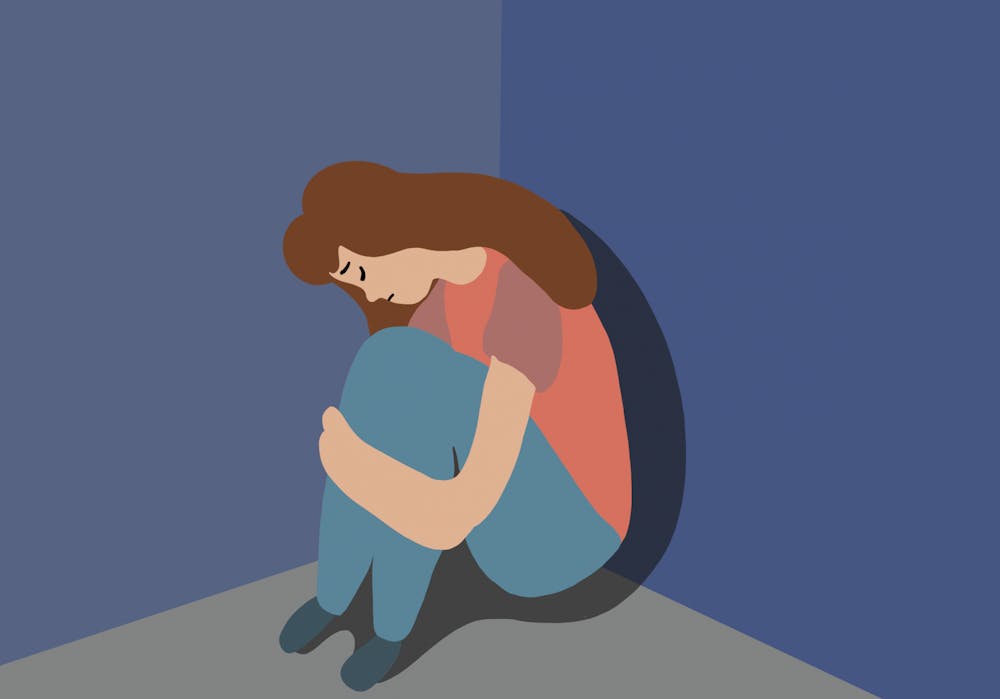Five months ago, I lost the most important person in my life. My mother had been battling brain cancer for the past year, and her passing devastated me, filling me with so much pain.
The fall semester began five days after she passed away, and I was still numb and in shock. Although I knew it would have been a perfectly appropriate and acceptable choice given the circumstances, I still didn’t want to take the semester off. I knew my mother wouldn’t want me to delay my education — one of her main goals in life was to see me graduate, so I didn’t want to let her down. I proceeded with a full course load despite carrying what felt like an insurmountable amount of grief and sadness.
I knew something had to give, as It was difficult to focus and concentrate on my school work. My mind was racing, and I was falling behind on my assignments, which overwhelmed me even more. I had to ask my professors for more support, and they were all flexible and understanding.
But I still couldn’t pretend to be fine, although I tried. I felt like I had to put on a performance because I didn’t know what was expected of me. For the first time in my life, I felt truly alone because the grief I was experiencing was so overwhelming and isolating.
Grief is non-linear. I had this conception that I would go through the five stages of grief and then I would be done — I would be able to move on and move forward with my life with ease. However, that was far from reality. I would jump between denial and anger or anger and depression, rather than going in order of the stages, which was frustrating.
Some days were better than others. There wasn’t a set path that dictated the way I should have been feeling on any given day, which made me realize that I on my own had to figure out what I could do to help myself and what others could do to help me.
First, I made an appointment with Counseling and Psychological Services. With their help, I was able to process different feelings that had arisen over the past few months, such as feeling guilty about enjoying life when my mom was deprived of so much of hers. As a result, I got a better understanding of my emotions.
I also sought out support from my friends and family. Since I was far from the latter, my friends rose to the occasion and offered all the love and support they had to give. I was able to freely talk to them, and they were there for me when I needed a distraction. I couldn’t ask for a better support system.
I often thought about whether I was grieving the right way, as if there was a proper way to grieve. There’s a lot of shame attached to the grieving process. It explains why many people feel as though there’s a right or wrong way to grieve or feel uncomfortable expressing their sadness around others. Grief is intensely personal, and it looks different for everyone.
The grieving process has given me the resolve to be kinder to myself. I had to let go of the high expectations I had for myself or for the future because otherwise I would feel inadequate. That is not to say I don’t have any goals or any hope for the future. I’m simply taking my life day by day.
My perspective on life has changed dramatically. I can’t say with any certainty what the future holds for me, especially because I thought I would have many more years with my mother.
I still think about the unfairness of the situation. While I was grieving the loss of my mother, I was also grieving the loss of plans, expectations and certain parts of myself, as I was happier and more high-spirited, but suddenly I felt I had lost all the cheerfulness that youth has to offer.
I know many people can relate to this feeling of loss. The COVID-19 pandemic has shown us that life can change in an instant. It has altered all of our lives in more ways than one. Over the past two years, we’ve all experienced a form of loss, whether that be a person, certainties regarding the future or stability. Even the small losses require us to grieve.
It’s important to acknowledge the various losses one may be facing during this time. Doing so allows us to make adjustments and be flexible with the changing state of our world. More than ever, everyone has to tolerate discomfort and navigate small or large changes in their personal lives. Finding different coping mechanisms and seeking support from our friends and family can help make these difficult times more bearable.
It took time to feel ready to talk and write about how I’ve felt over the past few months, but this willingness to be open and honest has helped me heal. I miss my mom so much. I know she would be proud of me for allowing myself to be vulnerable in sharing my experience with others so I can continue to heal.
Yasmin Teixeira is a Life Columnist at The Cavalier Daily. She can be reached at life@cavalierdaily.com.







